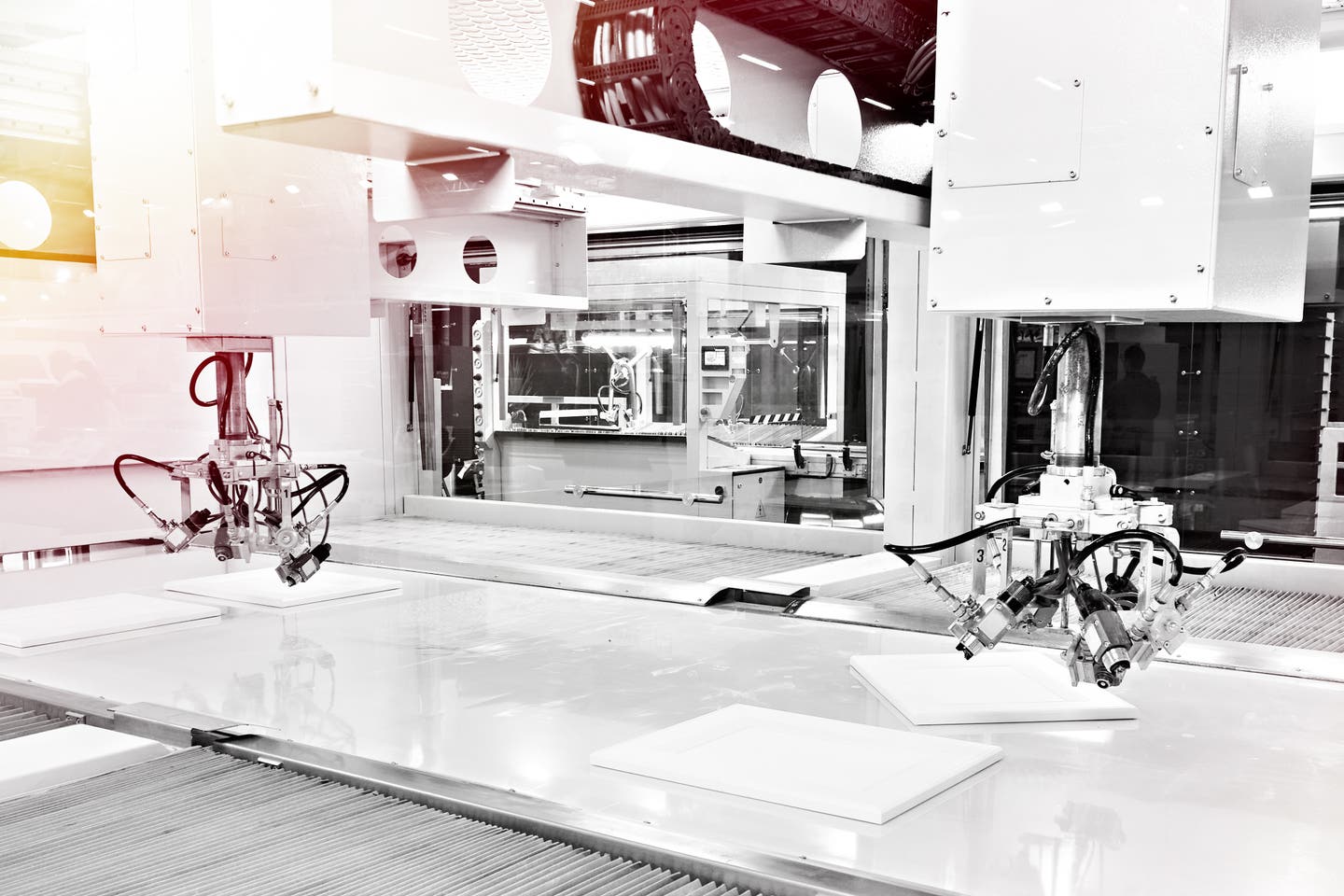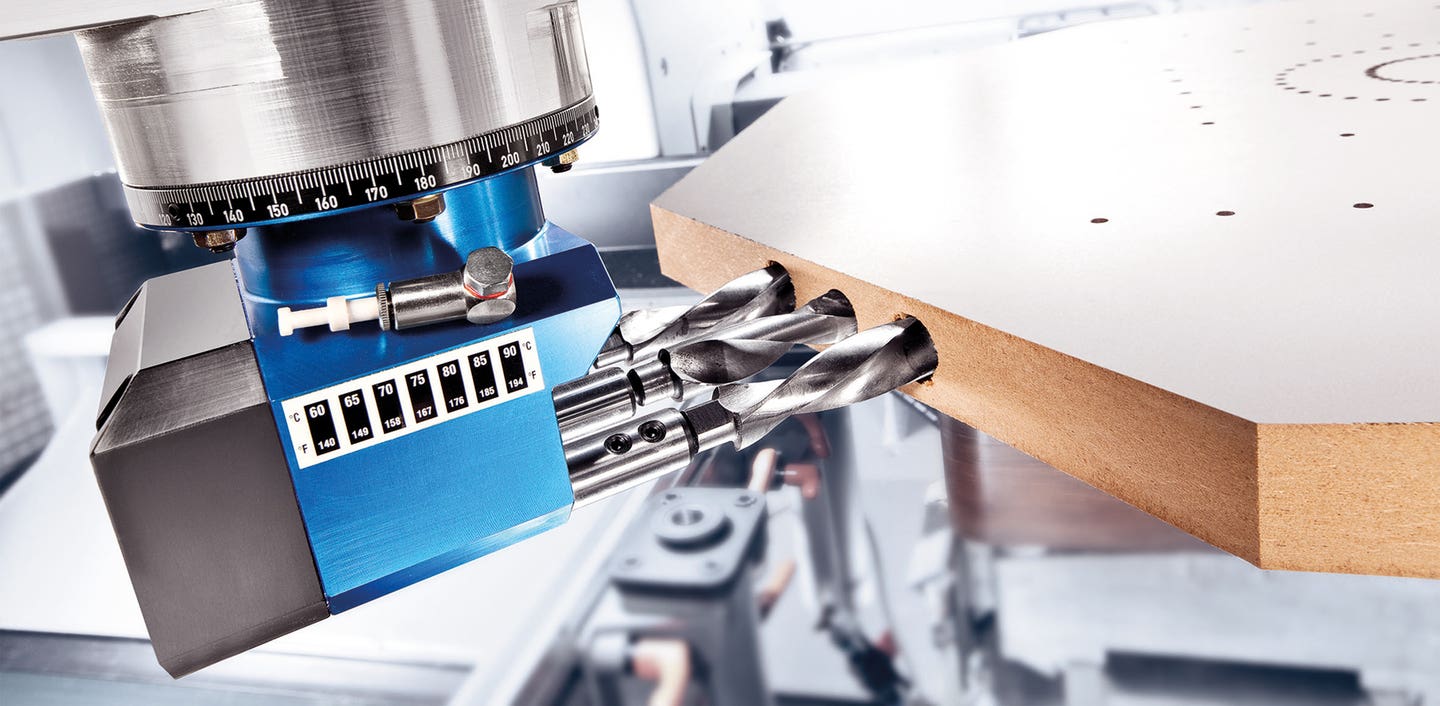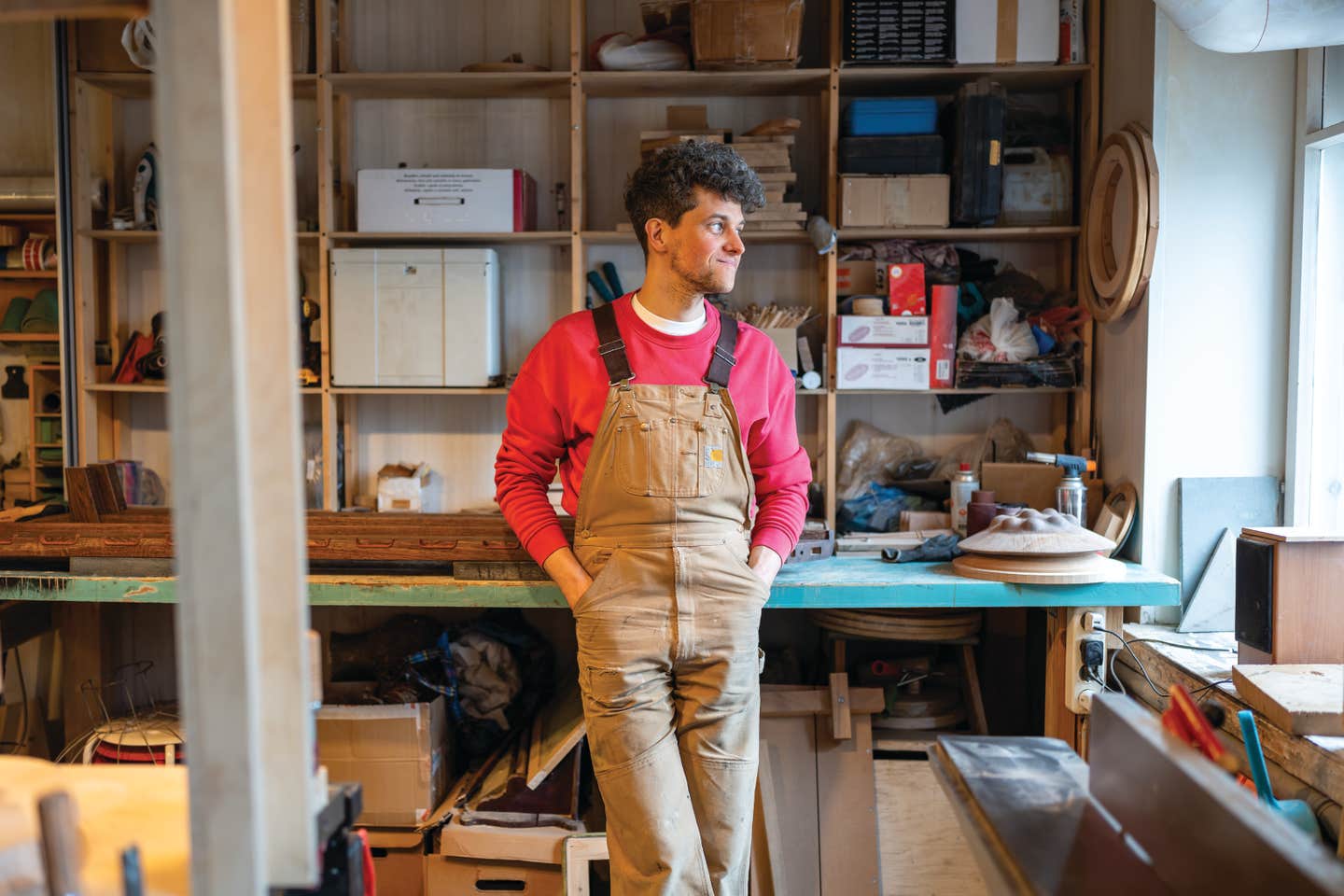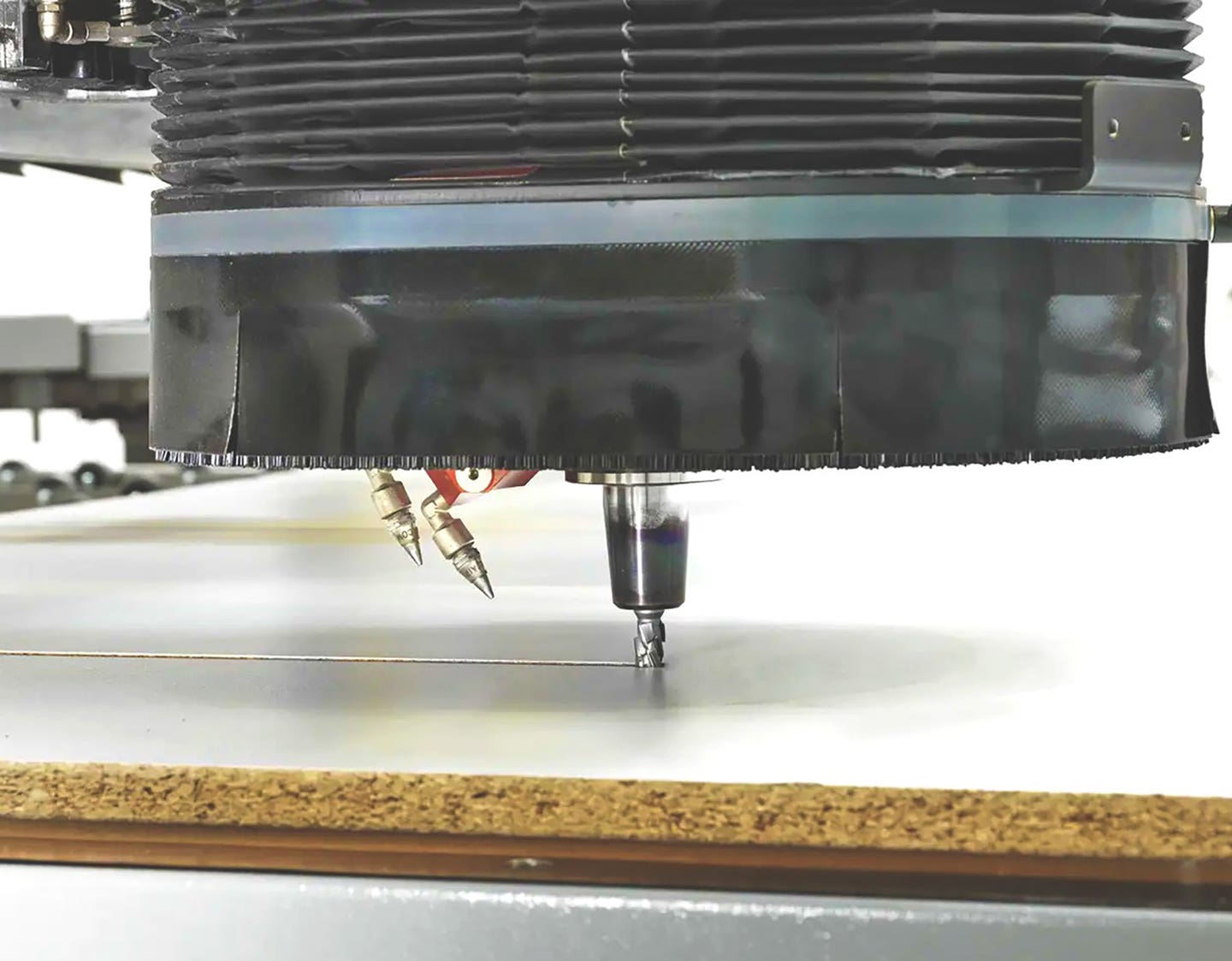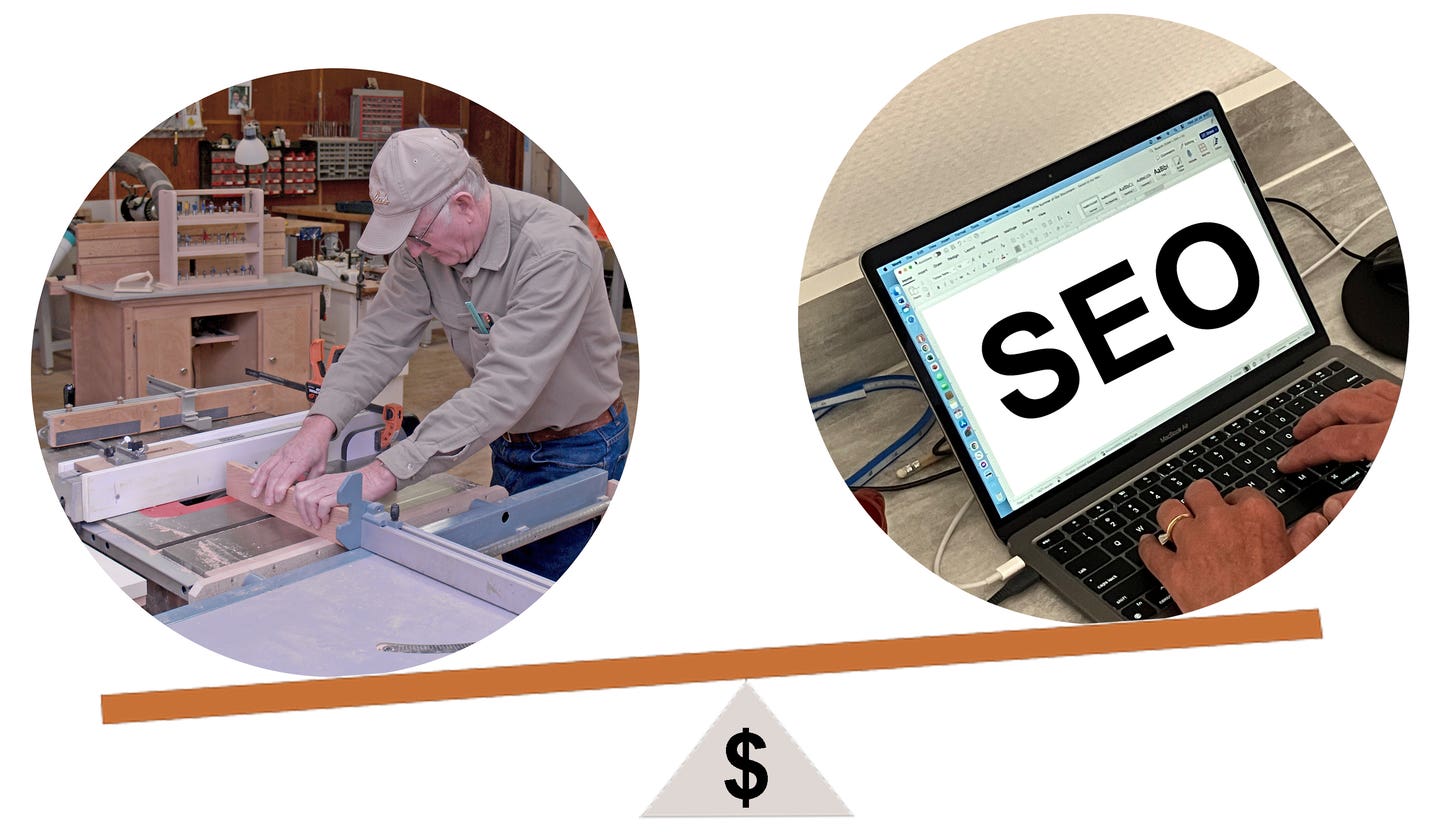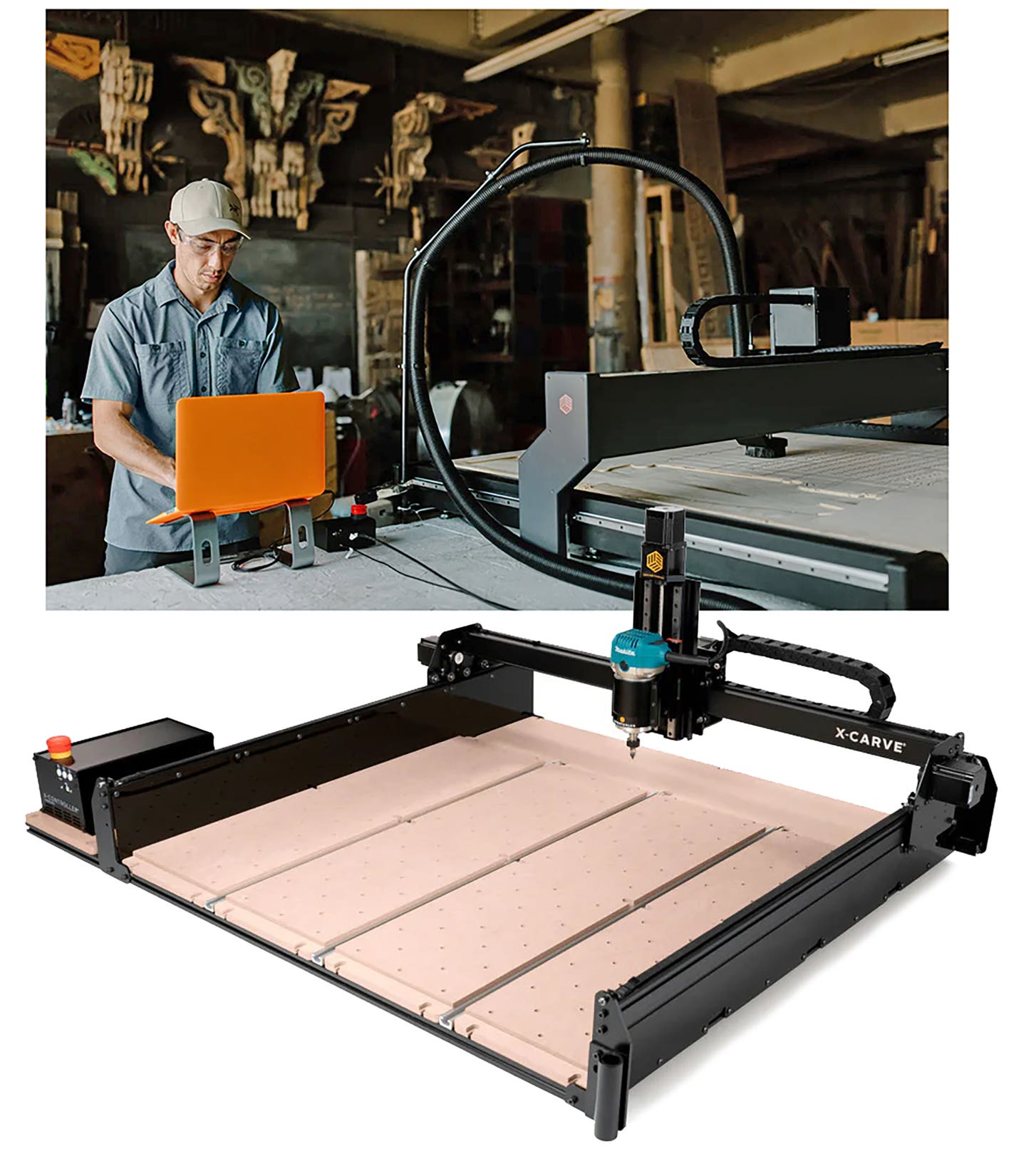It’s getting a little more difficult to define a desktop CNC. The description used to be limited to small, tabletop routers, but now it refers to a whole category of machines that can rout, carve, cut, engrave, burn or 3D print in at least three planes. Woodshops invest in a desktop machine because it can be used to create and decorate small components, or because it’s a learning platform for larger machines. Often, both goals are served simultaneously. And deciding which desktop CNC to buy is all about capabilities.
Engravers and lasers
Mechanical engravers use a small diameter tool to physically cut the surface of the wood. These are sometimes used to mark parts to identify them during the manufacturing or assembly processes, but more often they incise artistic designs such as graphics, lettering or photographic images. The depth of cut is very shallow, and operators of these machines tend to value speed and accuracy over torque.
Some of the models in this category are surprisingly inexpensive, but small. They can provide a startling level of detail in two- and three-dimensional wood carving. Some are controlled using a laptop or tablet, while others use a separate controller with a button array or touchscreen. The least expensive models don’t have a probe for establishing the Z axis, so setting the height to zero before you start milling can mean some trial and error.
The desktop CNC format is also ideal for hosting small lasers and these are becoming more popular because of their versatility and low operating cost. For example, two of the three new models recently introduced by AP Lazer (aplazer.com) qualify as desktop – the SN2616 and SN4836LR. Adding a laser to the shop can free up time on a CNC and provide customers with more intricate custom designs. The SN2616 has a 26” x 16” engraving area and plugs into a standard 110-volt outlet. The larger SN4836LR has a 28” adjustable Z-axis and a 48” x 36” engraving area. These are easy to operate, C02 laser machines with patented open architecture design.
i2R CNC (i2rcnc.com) offers a 6-watt laser engraving package that works with several models of the company’s desktop CNCs. It’s a plug and play set-up. The company also offers a rotary for CNCs that turns a router into a lathe. The kits (laser and rotary) are currently priced at $999 each.
And LightObject (lightobject.com) has introduced a new 24” x 16” desktop laser, the Ranger II, that has a built-in air pump. An optional honeycomb bed allows better heat dissipation and reduced flashbacks during operations. The controller has a color display and the Ranger II works with CorelDraw, AutoCAD, Illustrator, Inkscape and other software packages. It also supports LightBurn, which allows users to complete work with little to no training. And by allowing file transfer directly over flash drives and other USB media devices, the controller eliminates the need for an external PC.
SainSmart (sainsmart.com) offers laser engravers, small CNCs and 3D printers. The company’s Genmitsu ProverXL 4030 is a benchtop CNC machine that is a new class of easy to assemble, ready-to-go kits for cutting, drilling, and carving operations on a variety of materials including wood, MDF, plastics, foams, vinyl, and aluminum.
Routers
Most woodworkers think “router” when they hear someone mention a “desktop CNC”. Some entry-level models use portable routers as the motor, while others have dedicated spindles. There are woodshops that use desktop routers to make multiple parts, and others that are best suited to creating prototypes or unique joinery.
Desktop/benchtop routers are small, so they don’t eat up floorspace; inexpensive, so they don’t swallow the budget; and relatively easy to learn and use, as they don’t often have a lot of automation or accessories such as tool changers or vacuum clamping. Many of them are well designed and built, have long histories that have taken advantage of user input and feedback, and are backed by impressive customer service.
ShopBot (shopbottools.com) offers a desktop model with a 24” x 18” work area that has two bed options including a removable tool bed, and it runs on household power. The company also offers the Desktop Max, which has a 36” x 24” work area, and the Desktop Max ATC that adds a six-position automatic tool changer. This machine is at the border between desktop prototyping and full production machines. It can be ordered with an aluminum deck or a vacuum hold-down deck kit that includes a plywood plenum, MDF spoil board, and the company’s Vacuube that’s designed to hold down sheet goods without screws.
Desktop CNCs from Axiom Precision (axiomprecision.com) can be set up with optional stands and toolboxes so they essentially become mobile floor models. The entry-level Iconic models include three size options (24” x 24”, 24” x 36” and 24” x 48”), each with prismatic guides, ball screws, and the same powerful yet easy to use DSP pendant controller that the company includes with its larger machines. Targeted specifically at first-time CNC users, they’re supported by a comprehensive manual and video library to shorten the learning curve.
NextWave CNC (nextwavecnc.com) offers half a dozen models of U.S. built desktop CNCs in its Shark product line. They range from the Shark SD100 with a 12” x 18” table and 3” of Z travel (up and down) to the HD520 that has a range of 25” x 50” x 7”. NextWave’s HD series all come with a color touchscreen pendant, the latest VCarve software, a one-year warranty and lifetime tech support. They also include the company’s patented Virtual Zero technology that maps the surface of the table or workpiece by averaging five specific points of reference and then automatically adjusts the G-code to smooth out any imperfections. This drastically reduces problems caused by warped boards or inconsistencies in the table.
Bob’s CNC (bobscnc.com) offers various kits that are already machined so a woodworker can assemble a wooden desktop CNC. It takes a lot of time and patience and it’s a bit challenging, so one should do a little research before jumping in. But the machines look quite impressive and get some great reviews. There’s even one with a rotary axis.
Carbide 3D (carbide3d.com) has three models to choose from including the Nomad (8” x 8” x 3”), the Shapeoko 4 (three sizes: 17-1/2” x 17-1/2”, 17-1/2” x 33” and 33” x 33”), and two versions of the Shapeoko Pro (17-1/2” x 33” and 33” x 33”). The Pro uses linear rails for added rigidity and better cutting performance. The company also offers free design software called Carbide Create that is easy to learn and quite powerful. Shapeoko models have a Hybrid Table option that includes a grid with custom extrusions that make it very easy to fixture work.
The DWC1824 Mini Carver from Digital Woodcarver (digitalwoodcarver.com) is primarily designed for carving and it has a work area of 18” x 24” and 4” tall. The company also offers the DWC2440, which can handle projects as large as 24” x 40” x 5” and comes standard with Vectric’s VCarve design software. An upgrade of this model is a self-standing floor model that includes a fourthgth axis attachment for creating 3D carvings.
Inventables (inventables.com) says its X-Carve Pro is “the easiest and most affordable CNC machine on the planet”, and that a woodworker can “go from concept to design to product in minutes”. It’s very affordable, and there’s no CNC knowledge required to use the company’s Easel design software. The Pro comes in either a 2’ x 4’ or 4’ x 4’ configuration, with a 5-1/2’ rigid aluminum gantry.
Worried about size?
One way to get around the small workspace is to look at portable routers. The concept here is that you bring the machine to the work, rather than the other way around. Good examples are the Shaper Origin and the Yeti. Unfortunately, ShopBot has discontinued its groundbreaking HandiBot.
Shaper (shapertools.com) has added the Workstation to its Origin hand-held precision router, essentially creating a hybrid desktop system that excels at solid wood joinery such as dovetails, mortises and the like. The Workstation keeps everything perfectly aligned and secure while the machine moves across the part.
Yeti (yetismartbench.com) is a full-size portable CNC router that comes in three models. This is a large format, easy to use, space friendly, affordable option that sets up and packs down in a few minutes.
Another small router/large part workaround is the Maslow CNC (maslowcnc.com). This is a largely shop-built CNC that comes in a small box for under $500 and assembles into a 4’ x 8’ machine that is arranged vertically, so it takes up less floorspace.
This article was originally published in the August 2021 issue.


